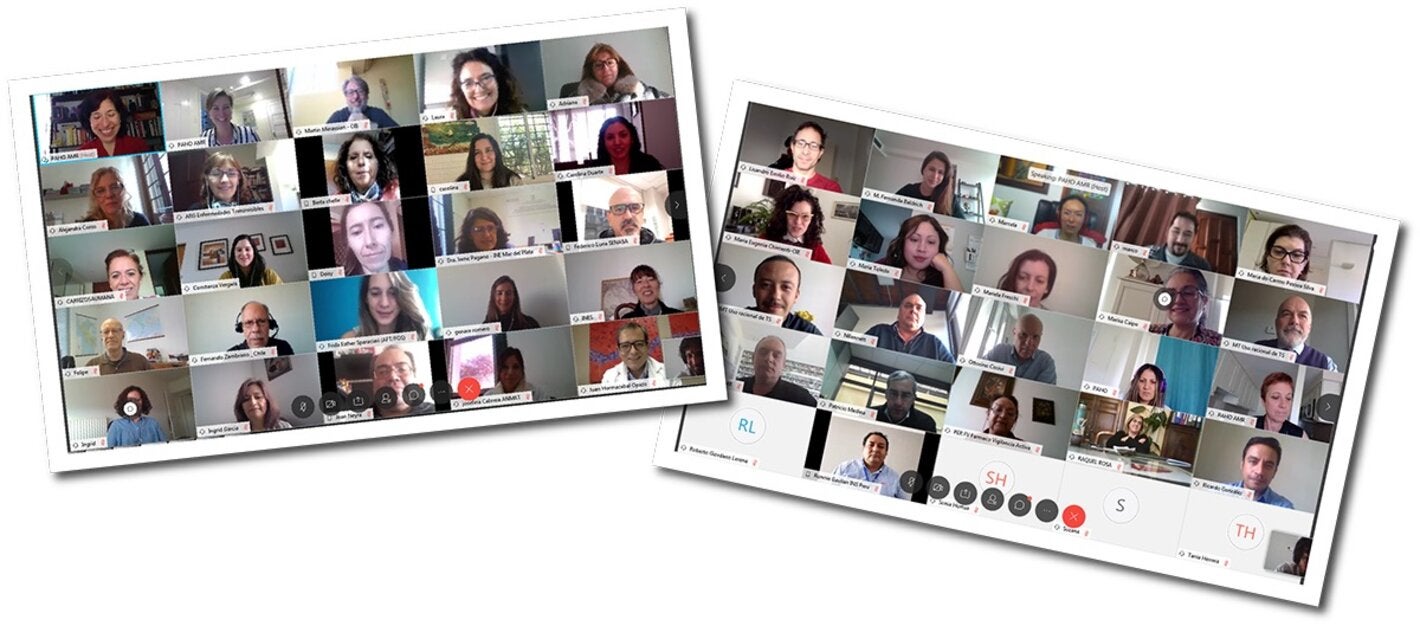
On may 27, 2020, a virtual meeting was organized by PAHO, FAO, OIE and the EU with participation of representatives of Ministries of Health and Agriculture from Argentina, Brazil, Chile, Colombia, Paraguay, Peru and Uruguay, to start officially with the activities of the project: ‘Working Together to Fight Antimicrobial Resistance’ to ensure a coherent “One Health”.
Antimicrobial resistance (AMR) represents a major global threat across human, animal, plant food and environmental sectors, threatening the effective treatment of an ever-increasing range of infections caused by bacteria, parasites, viruses and fungi, resulting in prolonged illness and increased mortality, often felt hardest by the most vulnerable populations. AMR is currently a global crisis that endangers the sustainable development objective of the United Nations, especially the Good Health and Well-being goals.
The overall strategic objective of the three-year project, implemented by PAHO in collaboration with FAO and OIE, and financed by the European Union (EU) is to contribute to tackle AMR in the countries through the implementation of NAPs. During this meeting were discussed the main activities for the first year of the Project with a specific focus in the global crisis for the new coronavirus 2019 (COVID-19) and the impact in its implementation.
For EU it is a priority to work with Latin American countries in the fight against AMR. In the Americas the AMR is also recognized as an intersectoral action priority area in the sector of human health, animal production and agriculture, and environment. The EU launched this Project financed by the Partnership Instrument, and manifested its desire to contribute to this initiative with its experience and knowledge of its general directors, DG Sante and DG Investigation and Innovation, and their agencies ECDC, EFSA and EMA, as well as the broad experience of its Member States.
The meeting showed the strong commitment of countries to join forces with PAHO, FAO, OIE and EU to combat AMR through “One Health” approach, as more than 80 professionals from diverse fields of knowledge from all the countries and implementing organizations participated.



